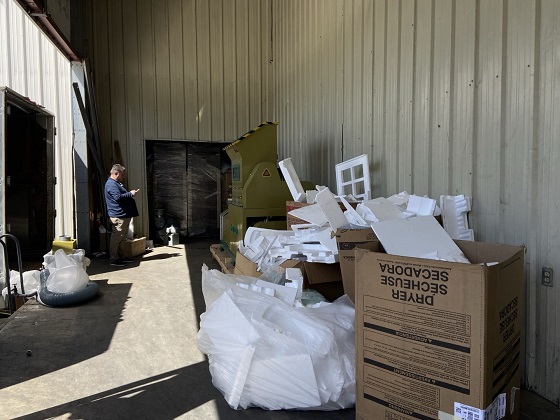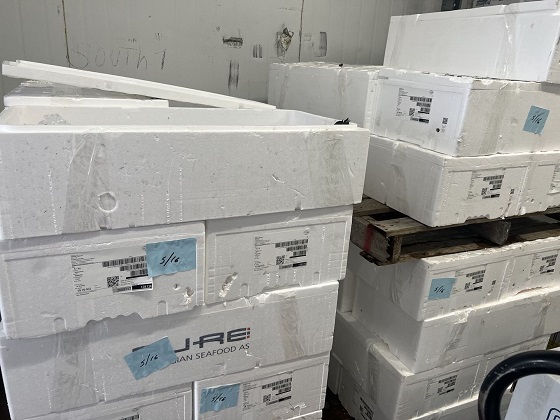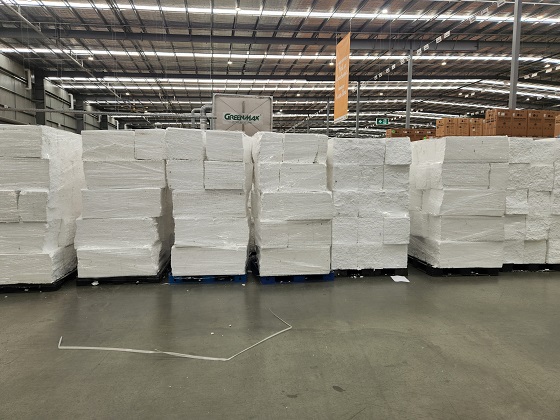The Ultimate Guide to UK Packaging Regulations
The UK Packaging Regulations are a set of legal requirements designed to manage the environmental impact of packaging throughout its life cycle. Originally introduced in 1997, these regulations were updated in 2007 as Producer Responsibility Obligations (PROs). These regulations ensure that businesses are responsible for the packaging they produce, use and dispose of, and aim to reduce packaging waste, promote recycling and reuse, and minimize the environmental impact of packaging materials. Businesses must follow specific guidelines for packaging design, production and disposal. These include using recyclable materials, minimizing the amount of packaging used, and ensuring that packaging is safe for consumers. By complying with these regulations, businesses can contribute to a more sustainable future, reduce their environmental impact and meet their legal obligations.

Responsibility for compliance with the UK packaging regulations rests with the various businesses involved in the production, use and disposal of packaging.
1) Producers: Producers and processors must ensure that packaging is recyclable, uses materials efficiently and reduces waste. They must keep records of the packaging they produce and meet recycling and recovery targets.
2) Importers: Businesses that import packaging or packaged goods must ensure that these materials comply with British Standards. They need to keep records of the types and quantities of packaging they import to ensure recyclability and compliance with regulatory requirements.
3) Retailers: Retailers must ensure that the packaging they use for transportation, display and sale meets regulatory requirements. They should work with their suppliers to source compliant packaging and manage recycling systems for the waste generated.
4) Packers/Fillers: Companies that package or fill products must use recyclable materials and meet regulatory requirements. They must keep records and contribute to recycling and recovery goals.
5) Brand Owners: Companies that sell products under their brand name must ensure packaging compliance, use recyclable materials and minimize waste. They are responsible for reporting disposed packaging and meeting recycling targets

Breaches of the UK Packaging Regulations can have serious consequences for businesses, ranging from financial penalties to reputational damage. It is important that businesses are aware of these potential consequences to ensure strict compliance and avoid adverse effects. The Environment Agency, which oversees enforcement, has the power to impose fines on businesses that fail to meet their obligations. The amount of the fine depends on the severity of the breach, but can be significant, running into the thousands of pounds. In some cases, daily fines may be imposed until the business rectifies the breach.
In addition to fines, UNEP may issue enforcement notices requiring businesses to take specific corrective measures within a specified period of time. Failure to comply with these notices may result in further legal action, including prosecution. Persistent breaches can lead to more serious consequences, such as court penalties or business restrictions. Serious breaches of the Packaging Regulations can also lead to legal consequences, with businesses potentially facing court action, which can result in significant legal costs, fines and, in extreme cases, even imprisonment for company directors. Legal action can be protracted and disruptive, taking up valuable time and resources that could be better spent on business operations. To avoid these serious legal consequences and ensure business continuity, it is vital that compliance issues are dealt with in a timely manner.
Understanding how the UK packaging regulations work and complying with them correctly is vital for businesses aiming to comply with legal requirements and promote environmental sustainability. Below is a complete overview of how these regulations work and the steps businesses should take to ensure compliance:
Businesses that handle more than 50 tons of packaging materials per year and have a turnover of more than £2 million are known as “obligated producers” and must register with an accredited compliance scheme or directly with the Environment Agency. Compliance schemes help businesses manage their obligations by collecting data, submitting the necessary documentation and meeting recycling and recovery targets on their behalf.

A thorough packaging waste audit is the first step to compliance. The audit helps companies understand the types and quantities of packaging materials they handle. By identifying waste streams, companies can develop strategies to reduce packaging waste and increase recycling rates. The audit should cover all aspects of packaging, from production and use to disposal.
Secondly, companies must ensure that their packaging is designed and produced in accordance with regulatory standards. This includes using recyclable materials, minimizing the amount of packaging used and ensuring that packaging is safe for consumers. Sustainable packaging design reduces environmental impacts and helps companies meet recycling and recovery targets.
Enterprises must ensure that a certain percentage of packaging waste is recycled or recovered. Businesses must keep detailed records of packaging materials handled, including quantities produced, imported and recovered. These records must be submitted annually to the Environment Agency or a compliance program. Documentation usually includes waste transfer notes, recycling certificates and evidence of purchased Packaging Waste Recovery Notes (PRNs) or Packaging Waste Export Recovery Notes (PERNs).
To meet recycling goals, businesses can purchase PRNs or PERNs from accredited reprocessors and exporters.PRNs and PERNs certify that a certain amount of packaging waste has been recycled or recovered. Proceeds from the sale of these notes are reinvested in recycling infrastructure and initiatives, further supporting national recycling efforts
Businesses should regularly review their packaging practices, recycling rates and documentation to ensure continuous improvement. Adopting new technologies and strategies to reduce packaging waste and increase recycling efficiencies can help companies remain compliant and contribute to environmental sustainability.
The UK Packaging Regulations were implemented to address several key environmental and economic issues. Its main objectives are to reduce the environmental impact of packaging, promote sustainable waste management practices and conserve natural resources. One of the main reasons for packaging regulations is to mitigate the environmental damage caused by packaging waste. Packaging materials, especially plastics, can cause serious pollution if not managed properly. By enforcing recycling and recovery goals, these regulations aim to reduce the amount of waste going to landfills and incinerators, minimize harmful emissions, and protect natural habitats. The focus on recyclable and reusable materials also helps to reduce dependence on virgin resources and protect ecosystems and biodiversity.

Regulations encourage companies to minimize the amount of packaging they use and promote the design of more efficient and sustainable packaging solutions. By reducing packaging waste at source, regulations help conserve resources and reduce the need for raw materials. This not only reduces the impact on the environment, but also promotes a circular economy where materials are continually reused and recycled, leading to more sustainable consumption and production patterns.
Enforcement of these regulations can also provide economic benefits by increasing the efficiency of material use and reducing waste management costs. Businesses that comply with the regulations save money on waste disposal and have the potential to generate revenue through recycling activities. In addition, the regulations support the development of the recycling industry, creating jobs in the green sector and stimulating economic growth.
UK packaging regulations are aligned with wider international efforts to manage packaging waste and promote sustainability. By complying with these regulations, UK businesses can ensure compliance with EU directives and other global standards. This not only helps to maintain market access and competitiveness, but also demonstrates a company's commitment to social responsibility and environmental stewardship.
Is your business looking for advice on complying with UK packaging regulations and meeting sustainability targets? Greenmax can help. Our team of experts provide comprehensive waste audits and consultancy services to ensure your packaging practices are compliant with the latest regulations. We analyze your waste and provide actionable recommendations to optimize your waste management processes.
